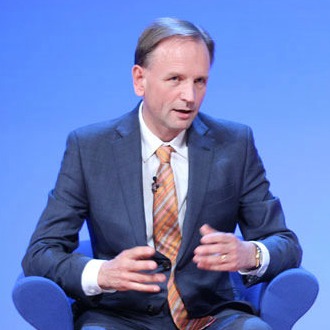Cash for dementia diagnoses intended to cover GP costs, Stevens says

The policy to give GPs £55 for every patient on their list diagnosed with dementia by April has been brought in to cover costs borne by practices when screening and diagnosing patients, the NHS England chief executive has claimed.
Speaking on Radio 4’s Today programme, Simon Stevens insisted the policy had the backing of a number of organisations, patients groups and medical experts, despite criticism from Dementia UK, the Patients’ Association and Patient Concern among others.
The scheme – revealed by Pulse last week – involves practices being paid £55 for each new patient added to the dementia register between October and the end of March next year.
The move is aimed at hitting a Government target of getting two-thirds of people thought to have dementia diagnosed by next April, but has sparked outrage from leading GPs and patient groups alike.
Speaking during a Today interview timed to coincide with NHS England’s Five Year Forward View announcement, Mr Stevens defended the policy.
In response to a contribution from a listener, who said ‘incentivising doctors to diagnose dementia is insane – good doctors will diagnose correctly anyway’, he said: ‘There are about 700,000 people who have probably got dementia across England, and at the moment just over half of those people who want to find out about that are [diagnosed].
‘The goal is – advised by medical experts, and by the Alzheimer’s Society, patients’ organisations – to try and ensure at least two-thirds of people… get to find out about that, so that they can get the medicines that would make a difference early on in their condition, where that’s appropriate, and they can begin to get the broader social support that they need.
‘So in order to do that, there sometimes are extra costs for GPs in going about those kinds of screening and diagnosis – that is what this is aiming to help.’
Mr Stevens went on: ‘This is a campaign, backed by the Alzheimer’s Society, by many other organisations.’
Related stories
‘GPs have not asked for this scheme’
I genuinely can’t be bothered to list everything that’s wrong with the new dementia DES
The Alzheimer’s Society released a statement supporting the initiative last week, but said more support for patients was needed.
George McNamara, head of policy and public affairs, said: ‘Given that only half of people living with dementia receive a diagnosis, any steps towards improving diagnosis is a good thing. However, a focus on enhanced payments is only part of the answer and alone will not suffice.
‘GPs are motivated by caring for their patients, not ticking boxes. We know that some doctors are reluctant to give a diagnosis because they know the right help and support isn’t available locally. It’s absolutely vital that every person with dementia understands what is happening to them and has access to the help they need afterwards.’
However, leading GPs have objected to the policy and the GPC has stressed it did not agree to the enhanced service, and believes the money would be better invested in providing better post-diagnostic support for those already suffering with the condition.
Dementia UK, the Patients’ Association and Patient Concern have all also raised concerns about the policy.
Katherine Murphy, chief executive of the Patients Association, said: ‘Good GPs will be diagnosing their dementia patients already. This seems to be rewarding poor GPs. It is a distortion of good medical practice. There is an issue of people presenting late with dementia to doctors, but this is not the right way to go about tackling that. If people were given hope that something could be done, that would be the greatest incentive for coming early.’
A Dementia UK spokesperson said: ‘Whilst we understand the benefits of a push to diagnose two-thirds of people with dementia by April 2015, we have some concerns about these plans… Do GPs really need a financial incentive? Many good GPs are already doing this to support families, but many are hesitant because of the dearth of follow-up care.’
Visit Pulse Reference for details on 140 symptoms, including easily searchable symptoms and categories, offering you a free platform to check symptoms and receive potential diagnoses during consultations.











